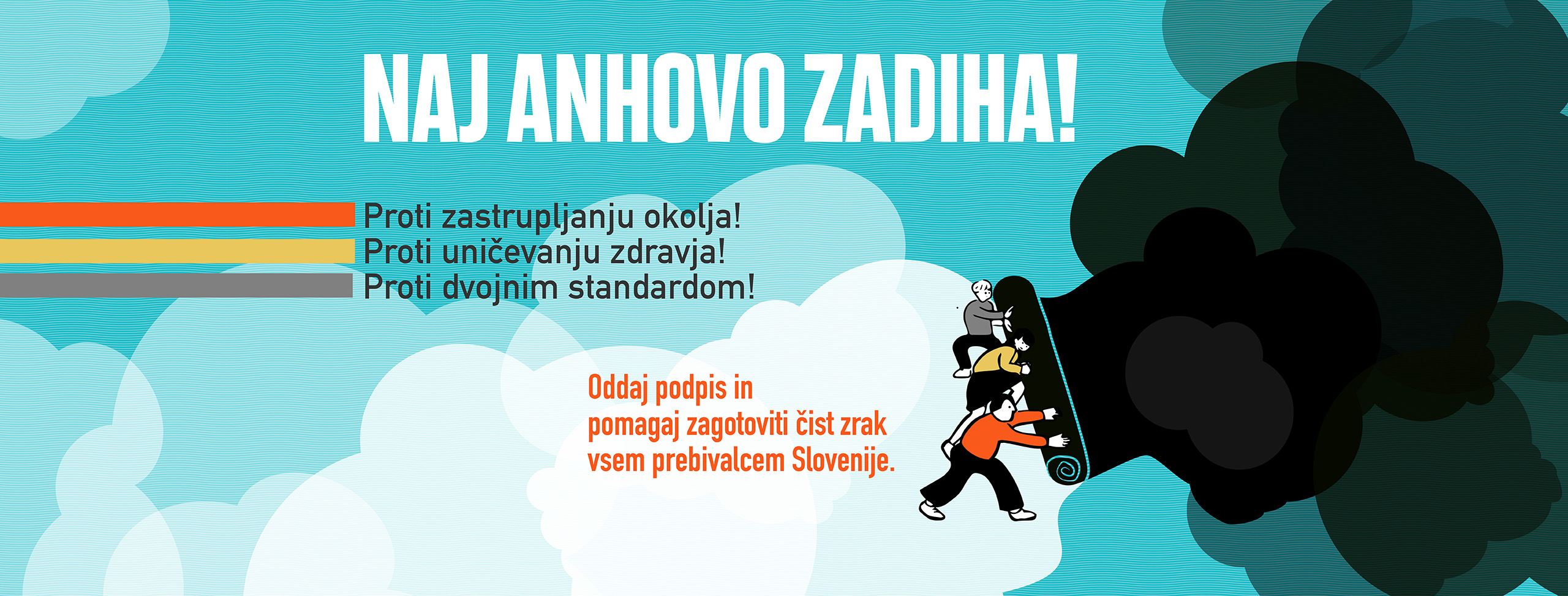Call for proposals: Micro or “rapid response” projects
Priority area: Strengthened civil society watchdog/advocacy role
Project duration: 1 July 2023–30 October 2023
Project value: EUR 4,999.73
The Salonit Anhovo cement plant co-incinerates nearly 109,000 tons of waste annually, making it the largest facility for waste co-incineration in Slovenia. Incinerating waste releases large amounts of dust emmissions, TOC organic compounds, benzene, heavy metals and other substances into the environment, which are harmful to people's health.
The Let Anhovo Breathe project is an advocacy campaign aimed at addressing the need for changing the environmental legislation regulating the co-incineration of waste in cement plants. The environment and public health can only be protected by implementing the necessary legislative changes.
The Eko Anhovo association has been striving to change the legislation for years with the intention of at least equating the standards or rules that apply to co-incineration plants with those that apply to specialized waste incinerators.
The Eko Anhovo and Soča Valley association has warned countless times in the past that the applicable environmental legislation allows for industrial installations for waste incineration (such as cement plants and thermal power stations) to emit several times more harmful substances into the air than dedicated waste incinerators. As a result, these co-incineration plants put a much greater burden on the environment and the health of locals.
The Slovenian environmental legislation and environmental protection permit (okoljevarstveno dovoljenje or OVD in Slovenian) allow for large differences in the emissions that apply to waste incinerators and those that apply to the Salonit Anhovo cement plant. It is thus legally permissible for Salonit Anhovo to emit into the environment several times larger amounts of dust, nitrous oxides (NOX), TOC organic compounds, ammonium, benzene and other substances than specialized waste incinerators.
Co-incineration plants present a much larger burden for the environment and the health of local residents. Moreover, due to its technological characteristics, the cement plant already emits large amounts of dangerous smoke and gas into the air, which are harmful to the environment and public health. We are talking about thousand tons of potentially hazardous emissions that are building up in the environment, which already bears a dire environmental and health burden due to the consequences of asbestos use at the Salonit Anhovo cement plant.
Consequently, the people living in the vicinity of such industrial plants are now exposed to pollution and health hazards several times greater than other Slovenians, who are lucky they do not have the largest Slovenian cement plant in their neighborhood. This violates the basic human right of locals living next to the cement plant to live in a clean and healthy environment is violated, which puts them in the position of third-class citizens.
For this reason, we submitted an initiative to the National Assembly, asking them to amend the Environmental Protection Act to make the environmental standards for waste co-incineration plants stricter and introduce greater control over them. The bill provides for the equalization of the limit values for co-incineration plants – which also include the cement plant in Anhovo – with those that apply to waste incinerators, and provides for greater control over such operations.
All of our efforts so far have been in vain, so we decided to take matters into our own hands. By submitting the draft bill, we demand nothing more than our constitutional right to a clean environment. With the Let Anhovo Breathe project, we will collect the signatures of support that we need we need to file the bill.
The Let Anhovo Breathe project is a joint effort of non-governmental organizations that successfully cooperated on the 2021 referendum campaign for drinking water. In September and October, we will take to the streets and most local government units around Slovenia, where we will urge voters to submit their signatures in support of the draft bill. In order to successfully file the bill, we need at least 5,000 certified signatures of support from voters.
Contact person: Mateja Sattler






